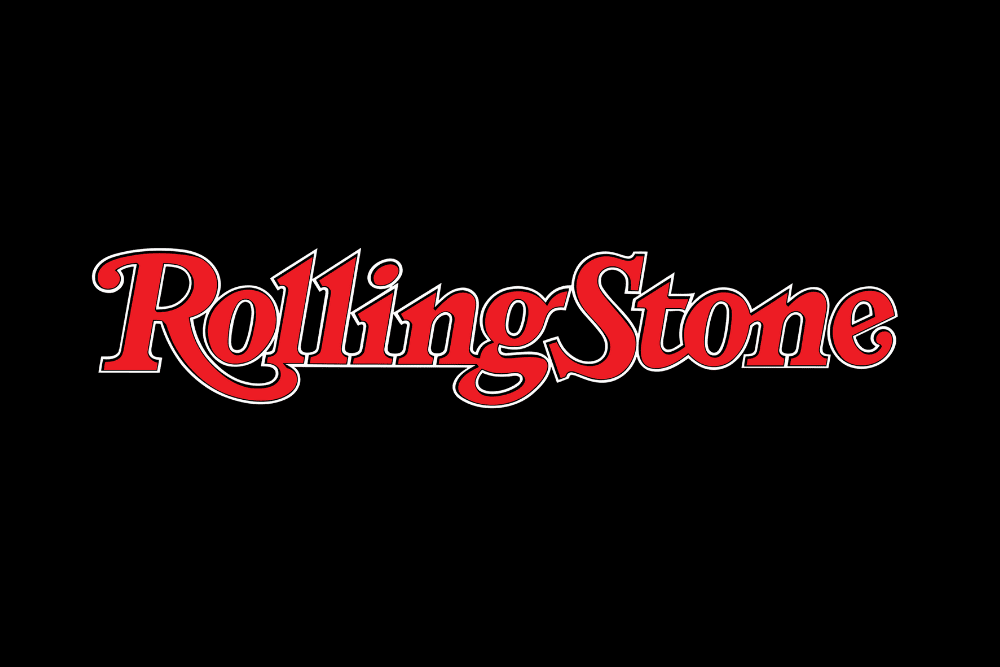When Treatment Turns Tragic: Understanding Your Legal Rights After a Detox Facility Death
Losing a loved one during detox treatment is devastating—you trusted a facility to help them recover, not to become another tragic statistic. Each year, families across California face the heartbreaking reality that their loved one died while seeking help for substance abuse, leaving them with questions about whether proper care was provided. If you’re grappling with the sudden loss of someone who entered detox hoping for a fresh start, you may be wondering whether the facility failed in its duty to keep them safe. The path forward involves understanding how California law protects patients in treatment facilities and what evidence proves when a detox center’s negligence contributed to a preventable death.
💡 Pro Tip: Request a copy of your loved one’s complete treatment records immediately—facilities may be required to maintain these for years, but getting them quickly preserves crucial evidence about staffing levels, medical monitoring, and care decisions.
Are you navigating the legal maze after a tragic loss in a detox clinic? MSD Lawyers is here to help you hold negligent facilities accountable. Reach out today for a confidential consultation at 213-401-0823 or contact us online. Let us guide you through this difficult time while ensuring justice is served.

California’s Strict Standards for Detox Facilities and Patient Protection
The Department of Health Care Services (DHCS) has the sole authority to certify and monitor all outpatient alcohol or other drug programs, also known as substance use disorder (SUD) treatment programs that offer treatment, recovery, detoxification, or Medication for Addiction Treatment (MAT) services. DHCS-certified SUD treatment programs are required to comply with the outlined requirements in the DHCS Certification for Alcohol and Other Drug Programs (revised February 2025); these certification requirements are effective immediately and supersede previous versions. When facilities fail to meet these standards, and a patient dies as a result, families may have grounds for a wrongful death lawsuit. A cause of action for the death of a person caused by the wrongful act or neglect of another may be asserted by the decedent’s surviving spouse, domestic partner, children, and issue of deceased children, or, if there is no surviving issue of the decedent, the persons, including the surviving spouse or domestic partner, who would be entitled to the property of the decedent by intestate succession.
💡 Pro Tip: Check if the detox facility had active DHCS certification at the time of your loved one’s death—operating without proper certification or during a suspension is strong evidence of negligence.
Building Your Case: The Timeline for Proving Detox Facility Negligence
Time is critical when pursuing a wrongful death claim against a detox facility. The statute of limitations for filing a suit is typically two years from the date of the decedent’s death, though if a person’s death was caused by medical malpractice, then the statute of limitations is three years from the date of death. Understanding the investigative process helps families prepare for what lies ahead while working with a detox clinic death lawyer in Los Angeles. Note that resolution of a dispute can happen at any stage below.
-
Immediate Response (Days 1-7): Secure medical records, autopsy reports, and document the facility’s initial explanations about what happened
-
Evidence Preservation (Weeks 1-4): Your attorney will send preservation letters to prevent destruction of surveillance footage, staff schedules, and internal incident reports
-
DHCS Records Review (Months 1-3): Obtain compliance history, past violations, and certification status through public records requests
-
Expert Medical Review (Months 2-4): Medical experts analyze whether the standard of care was breached and if proper detox protocols were followed
-
Discovery Phase (Months 4-12): Depositions of staff members, review of policies, and examination of similar incidents at the facility
-
Settlement or Trial (Months 12-24): Most cases resolve through negotiation, but some require trial to hold negligent facilities accountable
💡 Pro Tip: Document any previous complaints you made about care quality or safety concerns—timestamped emails or texts showing you raised red flags strengthen your negligence claim.
How MSD Lawyers Builds Strong Negligence Cases Against Detox Facilities
Proving negligence in detox clinic deaths requires demonstrating that the facility breached its duty of care and that this breach directly caused your loved one’s death. At MSD Lawyers, we understand that DHCS compliance reviews include inspection of the treatment center, review of personnel files, mock client files, staff interviews, and operations manuals—all potential sources of evidence showing systematic failures. Our team works with medical experts who understand detox protocols and can identify when facilities cut corners on staffing, medical monitoring, or emergency response procedures. We investigate whether the facility properly screened patients for medical conditions, maintained adequate nurse-to-patient ratios, and had emergency protocols in place. A detox clinic death lawyer in Los Angeles from our firm will also examine whether staff members were properly trained and whether the facility had a history of violations or complaints that should have prompted corrective action.
💡 Pro Tip: Keep a detailed timeline of all communications with the facility before and after your loved one’s death—seemingly minor details about delayed responses or evasive answers often reveal larger problems.
Key Evidence That Proves Detox Facility Negligence
Successfully proving negligence requires specific types of evidence that demonstrate how the facility failed to meet California’s standard of care. Medical records often reveal inadequate monitoring during the critical first 72 hours of detox when patients face the highest risk of complications. Staffing records may show the facility operated with dangerously low nurse-to-patient ratios or relied on unqualified personnel during overnight shifts. Documentation from DHCS facility licensing for alcohol and drug treatment programs can reveal past violations, conditional certifications, or requirements the facility failed to implement. Autopsy results and toxicology reports help establish whether proper medication protocols were followed or if dangerous drug interactions went unnoticed.
The Role of Mandated Reporter Violations
California law requires healthcare practitioners and facility staff who care for elders or dependent adults to report suspected abuse, with failure to report being a misdemeanor punishable by up to 6 months in jail and/or $1,000 fine. If abuse results in death or great bodily injury, penalties increase to 1 year in jail and/or $5,000 fine. When detox facilities fail to report signs of neglect or abuse that contributed to a patient’s death, this violation strengthens negligence claims and may support punitive damages.
💡 Pro Tip: Look for gaps in documentation or missing reports during critical periods—facilities sometimes alter records after incidents, but inconsistencies in timing or missing mandatory reports expose cover-up attempts.
Common Types of Negligence in Detox Clinic Deaths
Understanding how detox facilities typically fail their patients helps families recognize when negligence may have occurred. Medication errors rank among the most common causes, including administering wrong dosages of detox medications, failing to check for dangerous drug interactions, or not properly monitoring withdrawal symptoms. Inadequate medical screening before admission allows high-risk patients to enter programs without appropriate medical support. Some facilities accept patients with serious medical conditions they’re not equipped to handle, prioritizing profits over patient safety. Staff negligence includes failing to conduct required vital sign checks, ignoring patient distress signals, or leaving inexperienced staff unsupervised during critical shifts.
Facility Infrastructure and Emergency Response Failures
Physical plant deficiencies and poor emergency protocols contribute to preventable deaths. Facilities may lack proper emergency equipment, have malfunctioning call buttons, or maintain inadequate lighting in patient areas. California Elder Abuse Mandatory Reporting Law WIC 15630 requires immediate reporting of suspected abuse or neglect, yet some facilities delay calling 911 during medical emergencies, trying to handle crises internally to avoid scrutiny. When precious minutes are lost due to inadequate emergency response protocols, facilities bear responsibility for resulting deaths.
💡 Pro Tip: Interview other patients or family members who visited during your loved one’s stay—their observations about facility conditions, staff attentiveness, and emergency responses provide valuable corroborating evidence.
Financial Accountability and Compensation in Detox Death Cases
While no amount of money can bring back your loved one, holding negligent facilities financially accountable serves justice and may prevent future tragedies. California law allows specific family members to seek compensation through wrongful death claims. Whether or not qualified under standard succession rules, if they were dependent on the decedent, the putative spouse, children of the putative spouse, stepchildren, parents, or the legal guardians of the decedent if the parents are deceased may bring claims. Additionally, a minor who resided with the decedent for the previous 180 days in the decedent’s household and was dependent on the decedent for one-half or more of the minor’s support can pursue compensation.
Types of Damages Available to Families
Families may recover economic damages including medical bills from the failed treatment, funeral and burial expenses, and loss of financial support the deceased would have provided. Non-economic damages compensate for loss of love, companionship, comfort, care, assistance, protection, affection, society, and moral support. In cases involving particularly egregious conduct, such as falsifying records or operating without proper certification, punitive damages may be available to punish the facility and deter similar conduct.
💡 Pro Tip: Calculate the full value of your loved one’s contributions to the family beyond just income—courts recognize the monetary value of household services, childcare, and other support your loved one provided.
Frequently Asked Questions
Understanding Detox Facility Standards and Violations
Families often struggle to understand what constitutes negligence versus an unfortunate but non-actionable death during detox treatment. These questions address common concerns about facility obligations and legal standards.
💡 Pro Tip: Don’t assume a facility’s explanation for your loved one’s death is complete or accurate—an independent investigation often reveals critical facts facilities initially withheld or misrepresented.
Legal Process and Next Steps
Taking legal action while grieving feels overwhelming, but understanding the process helps families make informed decisions about seeking justice for their loved one.
💡 Pro Tip: Many detox clinic death lawyers in Los Angeles offer free consultations to evaluate your case—use this opportunity to ask about their experience with similar cases and success recovering compensation for families.
1. What specific DHCS regulations do detox facilities most commonly violate that lead to patient deaths?
The most dangerous violations include inadequate medical staffing during overnight hours, failure to conduct required health assessments before admission, and not having proper emergency response protocols. Facilities must maintain specific nurse-to-patient ratios and have physicians available for consultation 24/7. When facilities operate with skeleton crews or use underqualified staff to save money, they violate DHCS regulations and endanger patient lives.
2. How can I prove the facility’s negligence caused my loved one’s death rather than their underlying addiction?
Medical experts distinguish between deaths from addiction-related complications and those caused by facility negligence by examining medical records, response times, and treatment protocols. Evidence might show delayed emergency response, medication errors, or failure to recognize withdrawal complications. A detox clinic death lawyer in Los Angeles will work with addiction medicine specialists who can testify whether proper monitoring and treatment would have prevented the death.
3. Can I sue if my loved one signed a liability waiver when entering the detox program?
Yes, liability waivers cannot protect facilities from gross negligence or violations of statutory duties. California law prohibits healthcare facilities from using waivers to escape responsibility for substandard care. While facilities may claim waivers bar lawsuits, courts regularly find them unenforceable when negligence causes patient deaths, especially when facilities violate DHCS regulations or mandatory reporting requirements.
4. What if the detox facility closed or filed bankruptcy after my loved one’s death?
You may still have legal options through the facility’s insurance carriers, parent companies, or individual staff members who acted negligently. Many detox facilities operate as part of larger healthcare corporations that remain liable even if individual locations close. Your attorney can investigate corporate structures, insurance policies, and whether assets were improperly transferred to avoid liability.
5. How much does it cost to hire a detox clinic death lawyer in Los Angeles?
Most wrongful death attorneys work on contingency, meaning you pay nothing upfront and fees come from any settlement or verdict. This arrangement allows grieving families to pursue justice without financial stress. Attorneys typically advance case costs for experts, records, and investigations, recovering these expenses only if they win your case. Initial consultations are usually free, allowing you to understand your options without obligation.
Work with a Trusted Detox Clinic Deaths Lawyer
Pursuing justice after losing someone in a detox facility requires an attorney who understands both California’s complex healthcare regulations and the unique challenges of proving negligence in addiction treatment settings. The right legal team will compassionately guide you through the process while aggressively investigating how the facility failed your loved one. They should have experience obtaining DHCS records, working with medical experts in addiction medicine, and holding corporate healthcare facilities accountable for putting profits before patient safety. Whether your case involves a standalone facility or part of a national treatment chain, experienced counsel can navigate the legal complexities while you focus on healing.
Facing the aftermath of a tragic detox clinic death is overwhelming, but you’re not alone. Reach out to MSD Lawyers for support and guidance. Connect with us today at 213-401-0823 or contact us online to begin seeking justice and peace of mind.












